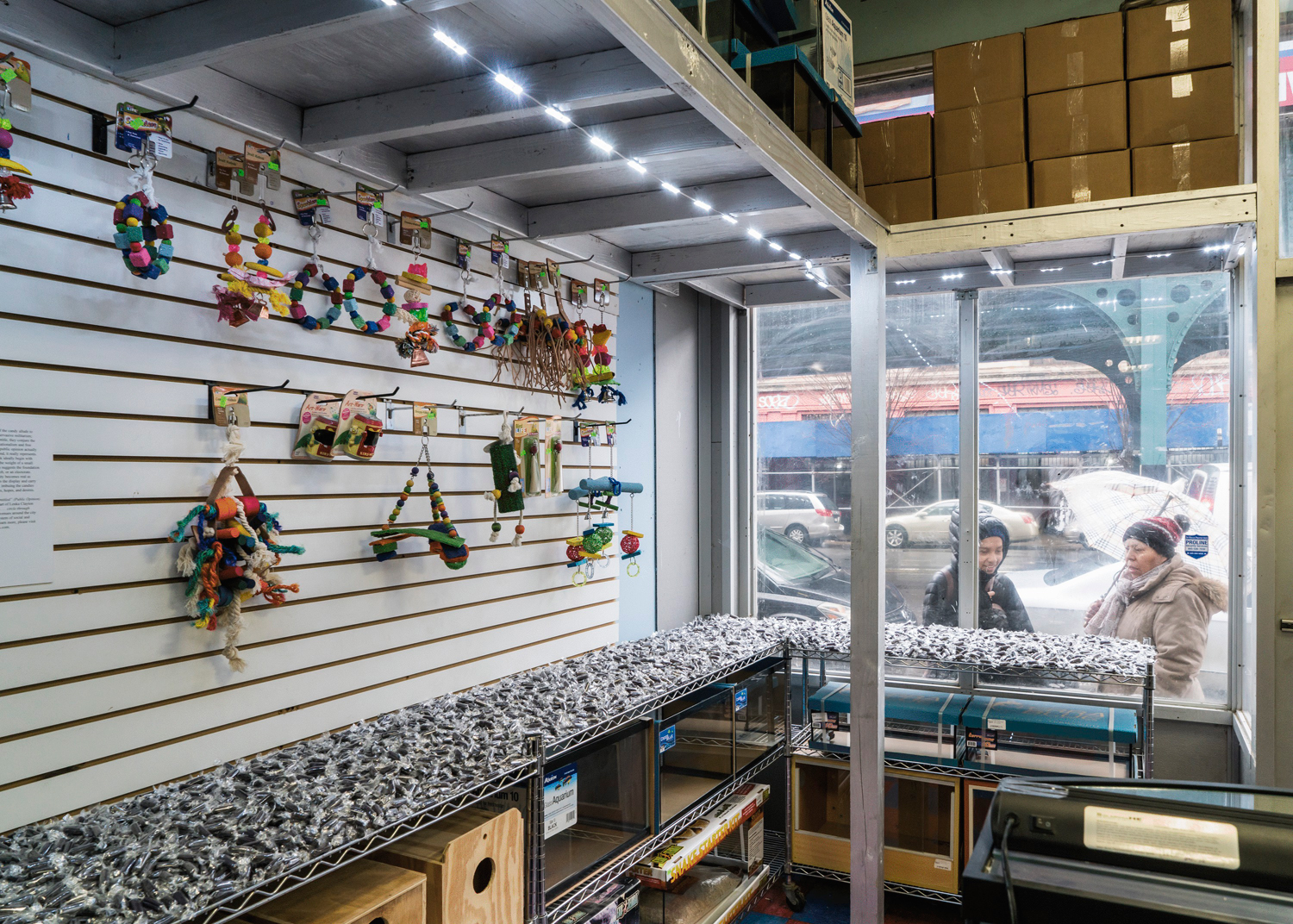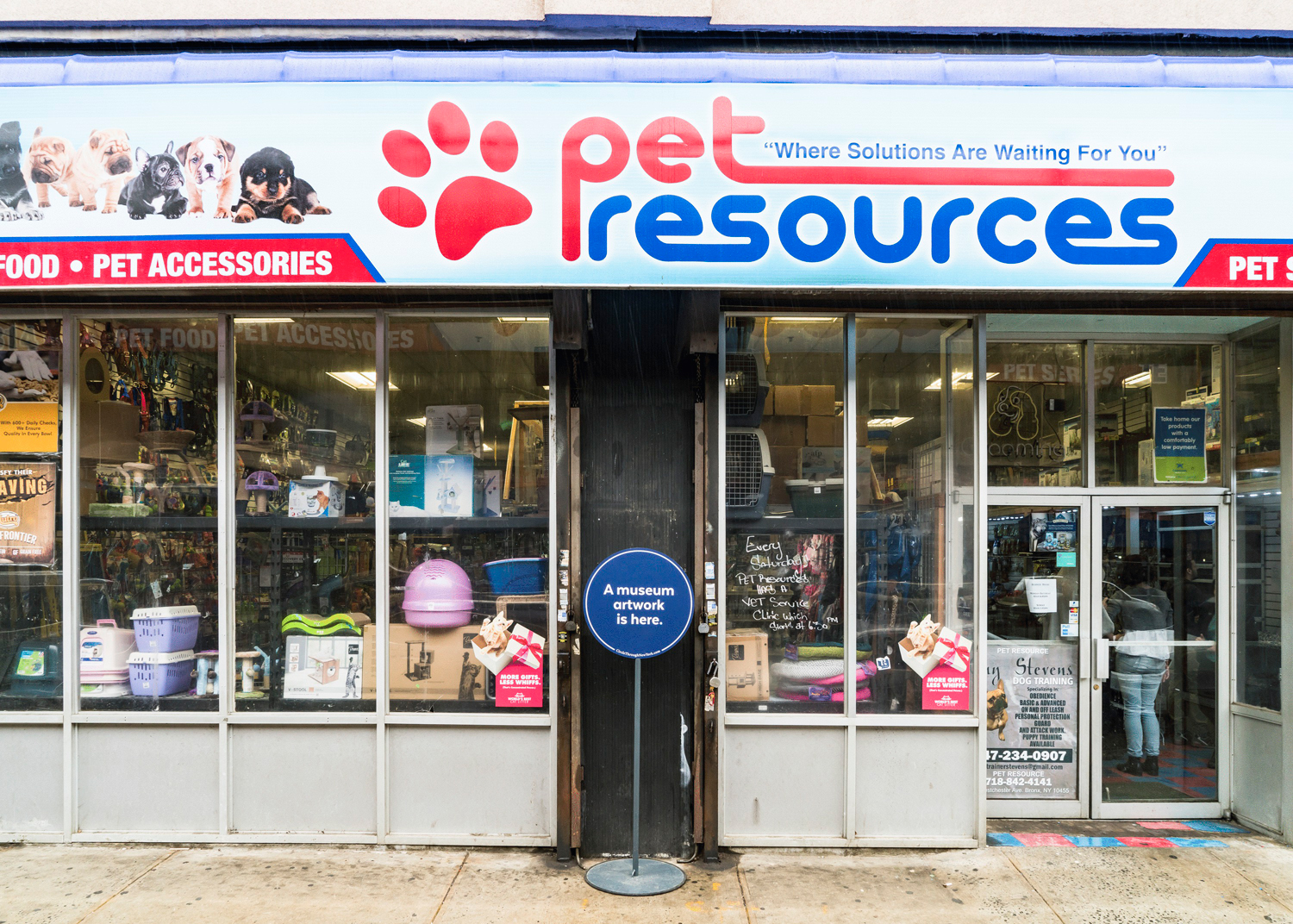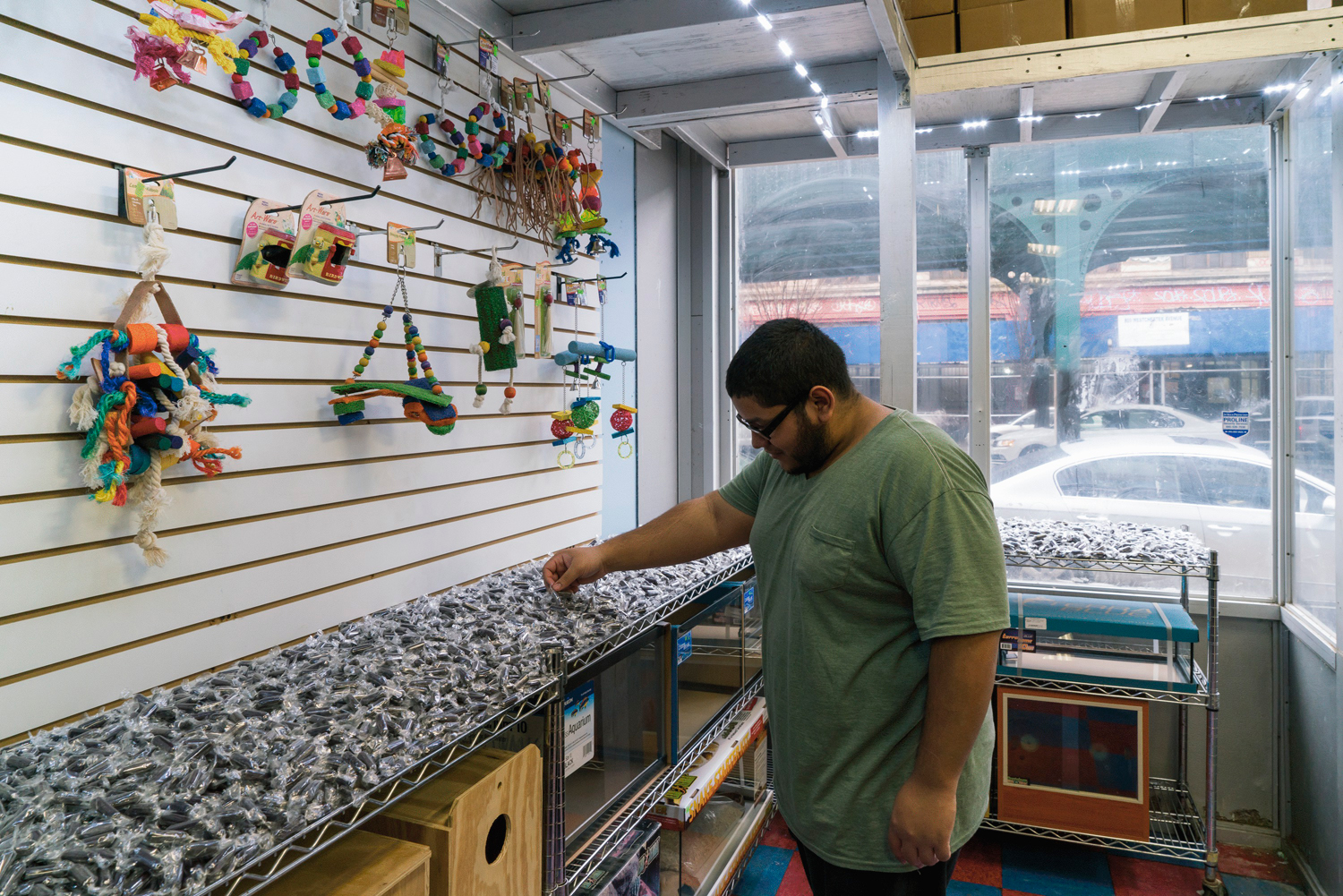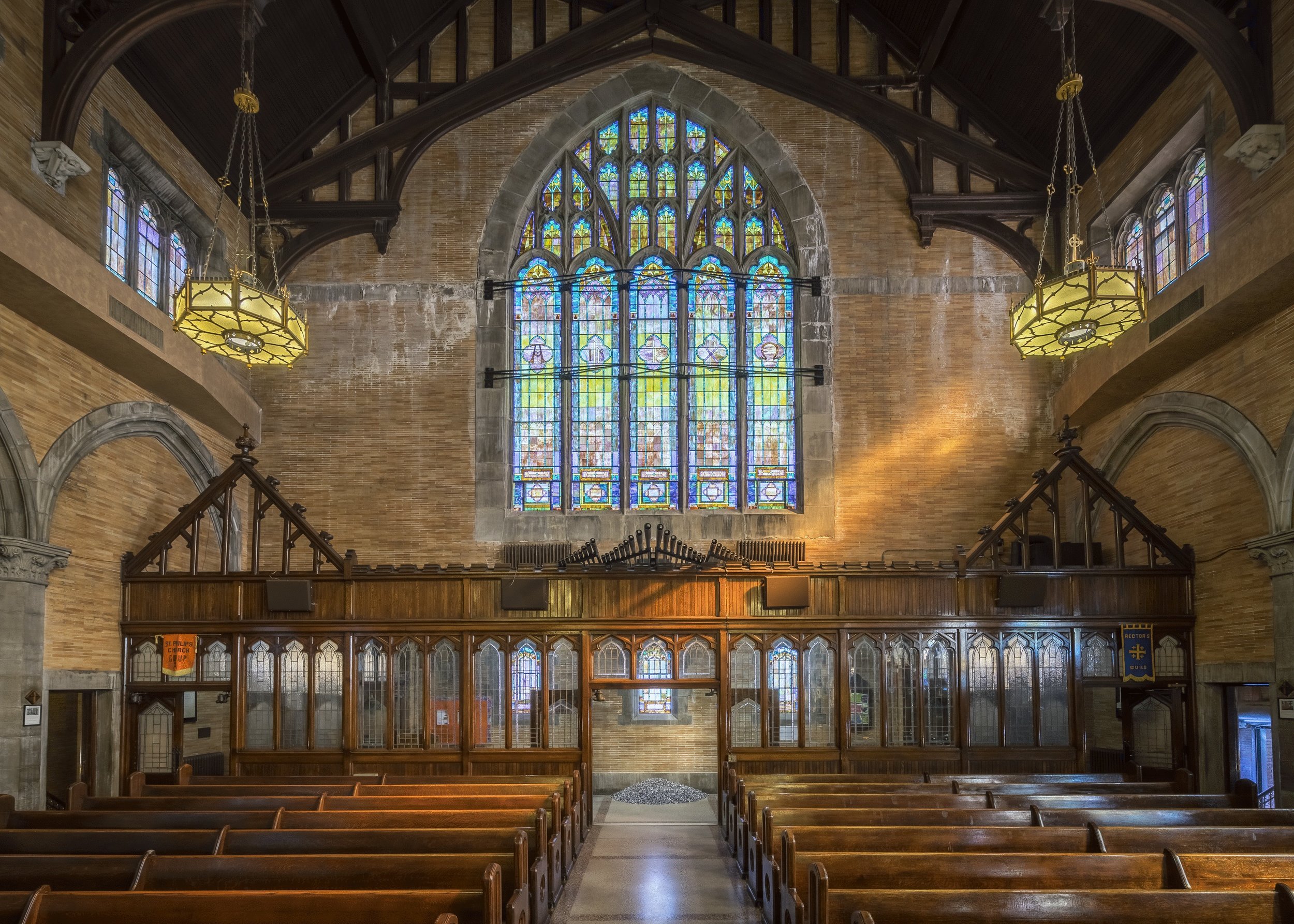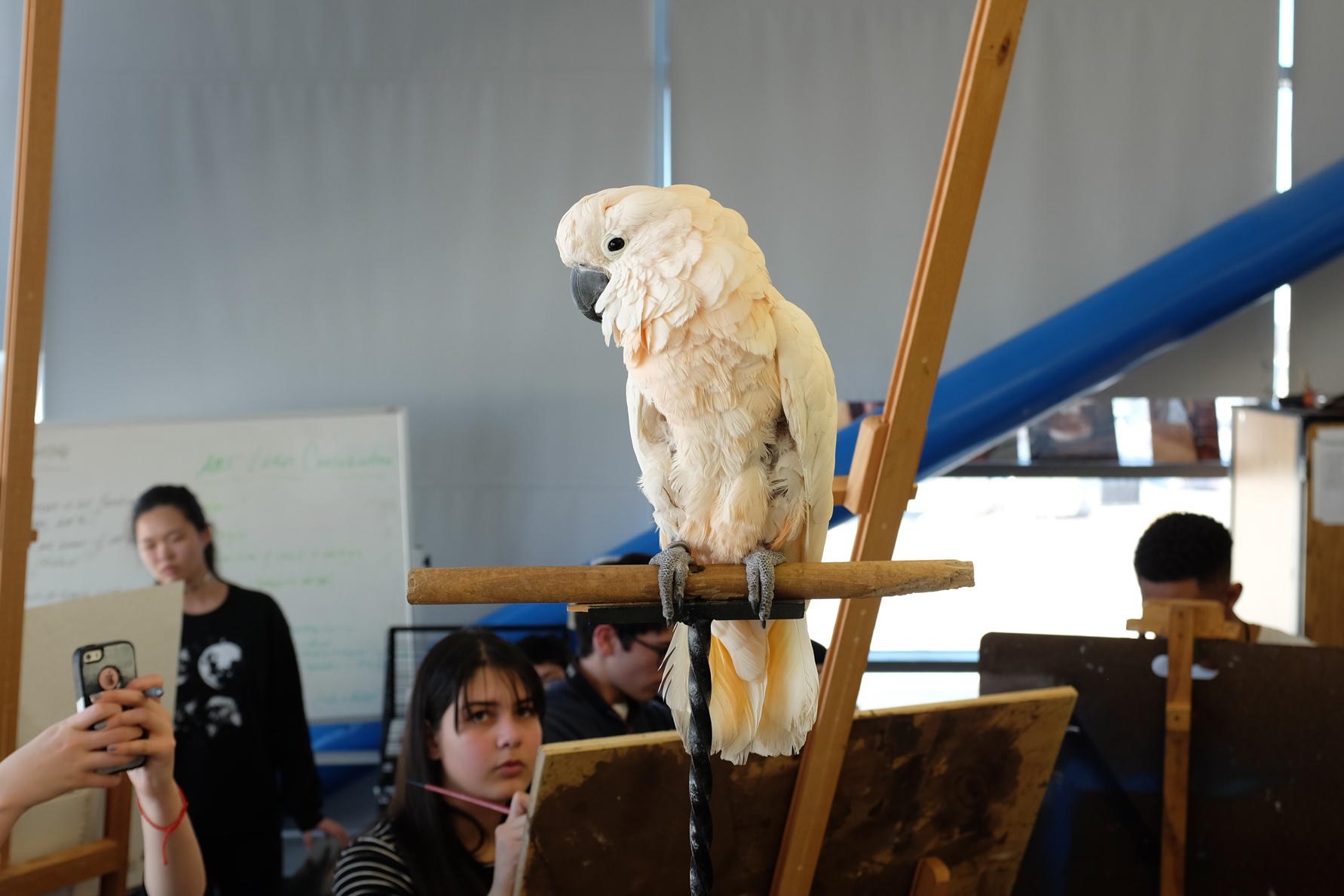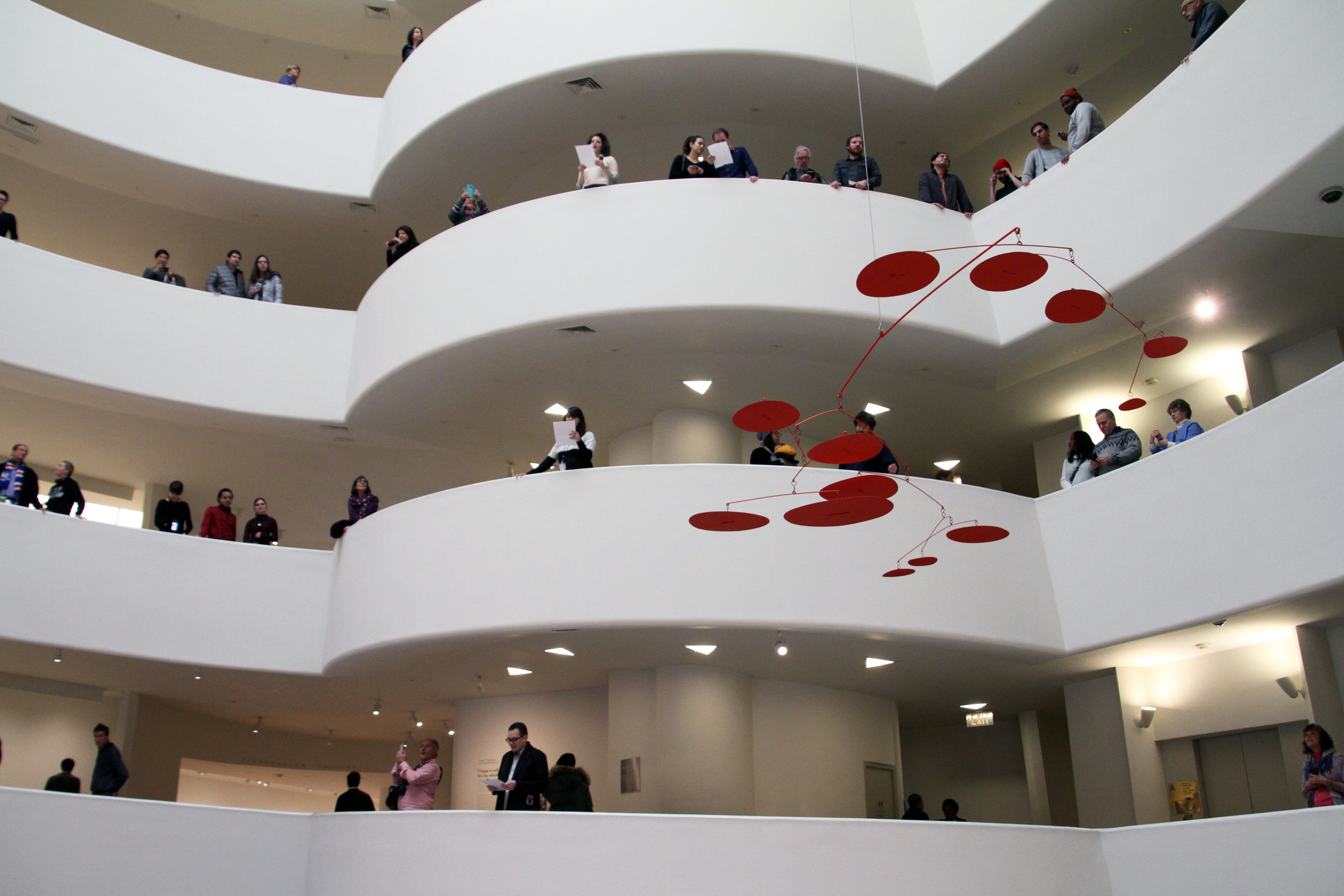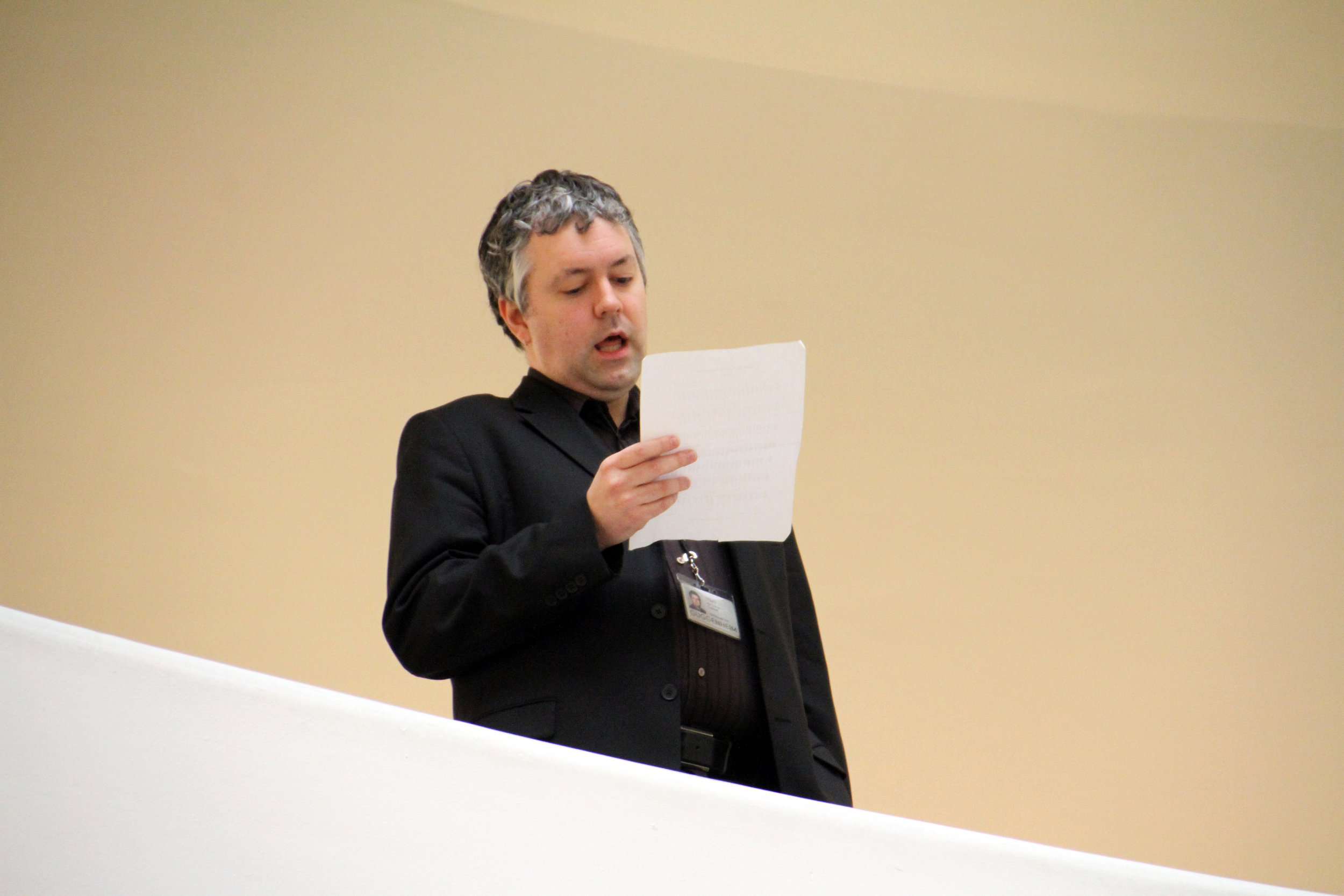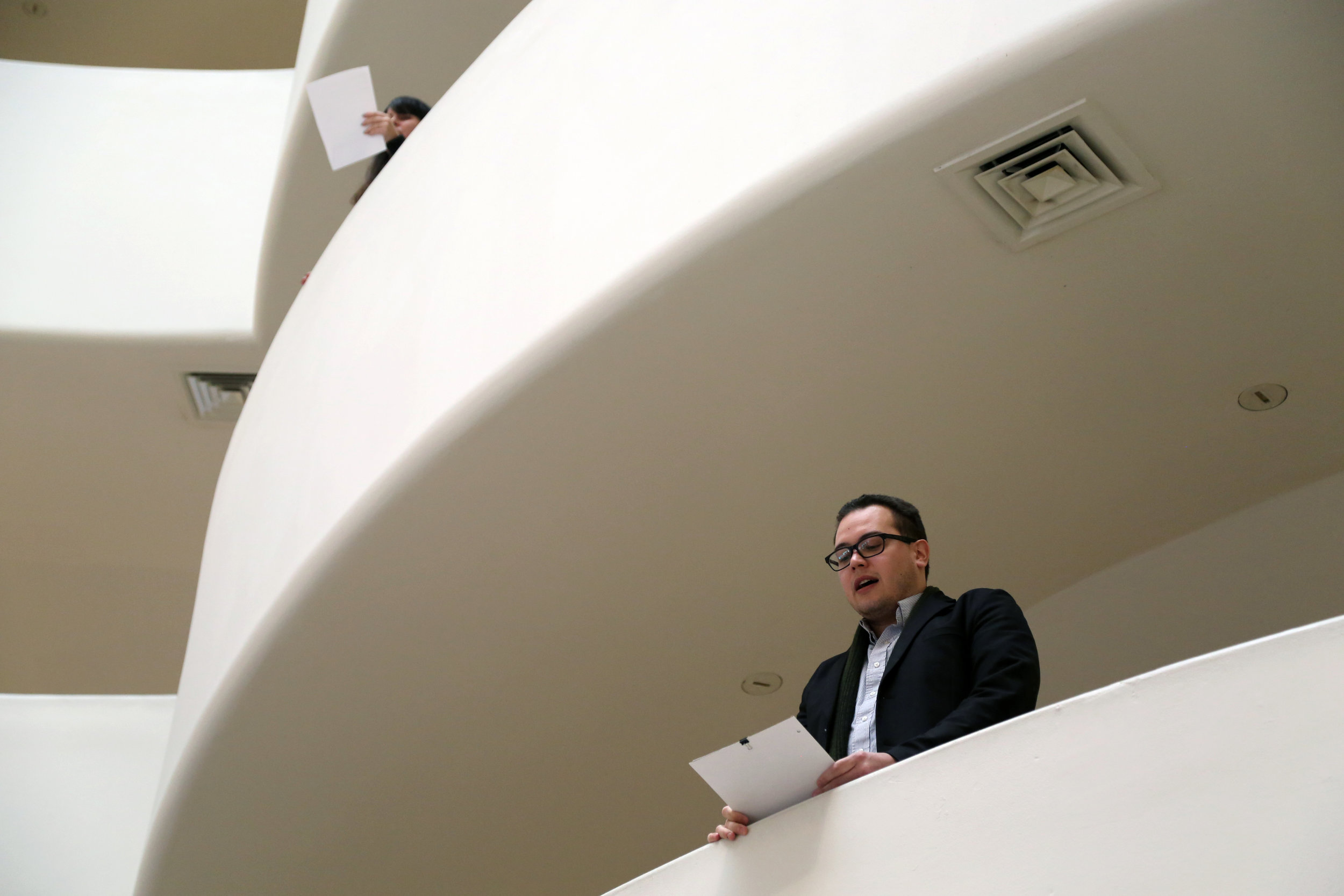A talking parrot, a high school drama class, a Punjabi T.V. show, the oldest song in the world, a museum artwork, and a congregation's call to action circle through New York.
Collaboration with Jon Rubin / Documentation by Giacomo Francia / Commissioned by Guggenheim Social Practice Initiative, Funded by The Rothschild Foundation
In their new project A talking parrot, a high school drama class, a Punjabi TV show, the oldest song in the world, a museum artwork, and a congregation’s call to action circle through New York, artists Lenka Clayton and Jon Rubin gather a diverse group of local communities in a complex system of social and material exchange. Following a period of extensive research, the artists identified six very different public sites that lie along an imaginary circle drawn through Harlem, the South Bronx, Queens, and Manhattan’s Upper East Side. These spaces serve as the project’s co-creators and venues. Each venue worked with the artists to select an important aspect of their identity—referenced in the project’s full title— which will rotate among the six locations over a period of six months from March 1st through August 30th.
For example, when the oldest song in the world leaves the Institute for the Study of the Ancient World to travel around the circle, it will be hummed by Guggenheim Museum staff in the galleries daily during March; sung by the choir at St. Philip’s Church in Harlem during April; played at a pitch only audible to dogs at Pet Resources in the Bronx during May; interpreted by the student band at Frank Sinatra School of the Arts in Queens during June; and broadcast as a Bollywood music video at Jus Broadcasting in Queens during July.
These are just a few of the unique collaborations created by Clayton and Rubin’s project, challenging each partner site to repeatedly accept and care for the others’ value systems, public functions, or social character within its own routines. By encouraging moments of mutual cooperation, . . . circle through New York creates connections between sites that are usually separated by cultural, economic, geographic, or circumstantial boundaries. At the same time, the project aims to engage audiences at each location, whose daily lives may be fundamentally—and playfully—altered as they encounter this work of art. Clayton and Rubin’s project forges a shifting network of social relations founded on quiet humor, empathy, and the power of art to transform reality.
Nat Trotman, Guggenheim Curator of Performance and Media
Exhibition guide and way-finder, available for free at any of the six project venues / designed by Brett Yasko

